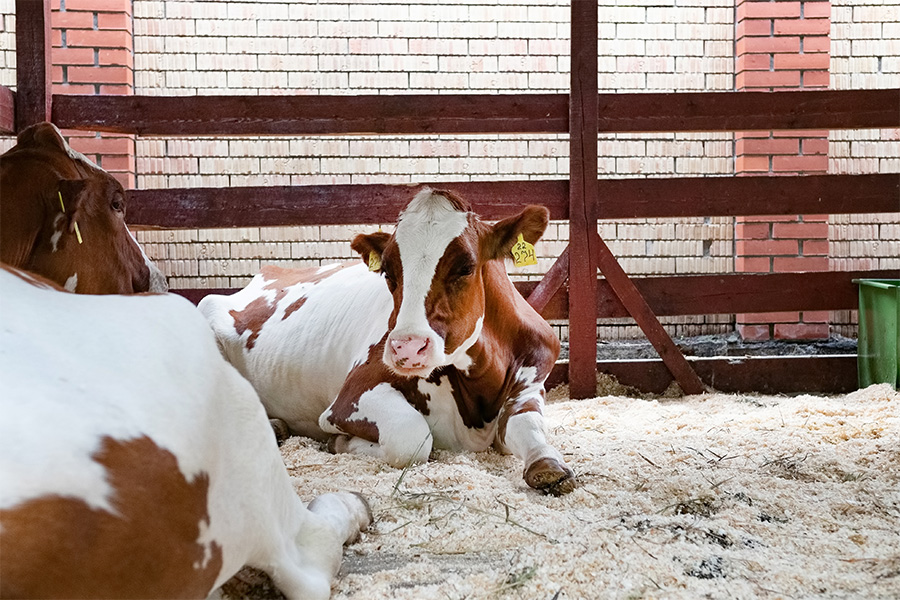-
Results of the 2014-2015 performance tests of small grains grown for grain and forage are printed in this research report. Grain evaluation studies were conducted at five locations in Georgia, including Tifton, Plains, and Midville in the Coastal Plain region; Griffin in the Piedmont region; and Calhounin the Limestone Valley region. Small grain forage evaluation tests were conducted at four locations in Georgia, which included Tifton and Plains in the Coastal Plain region, Griffin in the Piedmont region and Calhoun in the Limestone Valley region, and at Marianna, Florida.
|
-

Radon is the second leading cause of lung cancer in the United States. A radon reduction system (radon mitigation) reduces high levels of indoor radon to acceptable levels. The system most frequently used is a vent pipe system and fan, which pulls radon from beneath the house and vents it to the outside. This publication educated homeowners on what they should do before, during and after a radon mitigation and what they should expect from a radon mitigator.
For more information on radon, visit http://www.UGAradon.org or call 1-800-ASK-UGA1.
|
-
Clutter is a collection of things lying around in an untidy mess, usually because we don’t have a designated place for it. Household clutter has a big impact on your health and quality of life. This publication will help you asses if you have too much household clutter and then recommends ways to take charge, clear the clutter, and maintain a clutter-free home.
|
-
The cumulative greenhouse gas (GHG) emissions from any human activity are commonly referred to as the carbon footprint. The Poultry Carbon Footprint Calculation Tool was developed and designed specifically for poultry production farms. The tool can be used to estimate the greenhouse gas (GHG) emissions from pullet, breeder, and broiler grow-out farms.
This publication provides an overview for poultry producers on how to use the tool and gives recommended applications. The tool can be downloaded from
https://poultry.caes.uga.edu/content/dam/caes-subsite/poultry/documents/GHG-Calc-Tool.xlsm|
-

Cow behavior is critical for animal well-being and performance and influenced by many factors, such as heat stress. Under thermo-neutral conditions, cows spend half a day lying down and the rest of the time is distributed into standing, feeding and milking. However, when cows are exposed to heat stress, they spend less time lying down but more time standing up. The altered cattle behavior by heat stress may be associated with impaired productive and reproductive performance and an increase in disease incidence.
This publication focuses on the impacts of environmental heat stress on cattle behavior and the possibly related consequences.
|
-
The Georgia Master Gardener Handbook, 8th Edition, is the official reference text produced by the University of Georgia and developed for Master Gardener training. For more information about the Georgia Master Gardener Extension Volunteer Program, visit www.GAmastergardener.org.
This book, published in 2021, is currently available at $95 per copy (including tax). Single copies (no certificate or badge included) may be purchased online with a credit card at the UGA Extension Store website. Delivery will be 7-14 business days from receipt of order. Please include a street address rather than a P.O. box. Sales of books and data are considered final. Materials returned because of damage in shipping will be replaced.
This edition was extensively revised and updated in 2021. This edition also includes an all-new guide to the Master Gardener experience.
This 8.5 x 11″ book is perfect-bound with soft cover and contains 978 pages with color photos.
|
-
Pecan production is considered by many who practice this endeavor to be as much an art as it is a science. Growers must integrate multiple disciplines in order to be successful. This book was created with the goal of being a comprehensive reference text for pecan growers, scientists, and county agents. It addresses pecan culture and management in the southeastern United States. For more information, visit https://pecans.uga.edu/
|
-
Do you want a landscape that is beautiful, saves you time, effort and money and uses less water? If you do, a water-wise landscape is for you. Water-wise landscapes are designed, organized, and maintained by practices that use water strategically and wisely. Follow the seven basic steps outlined in this guide to create a beautiful water-wise yard or home garden.
|